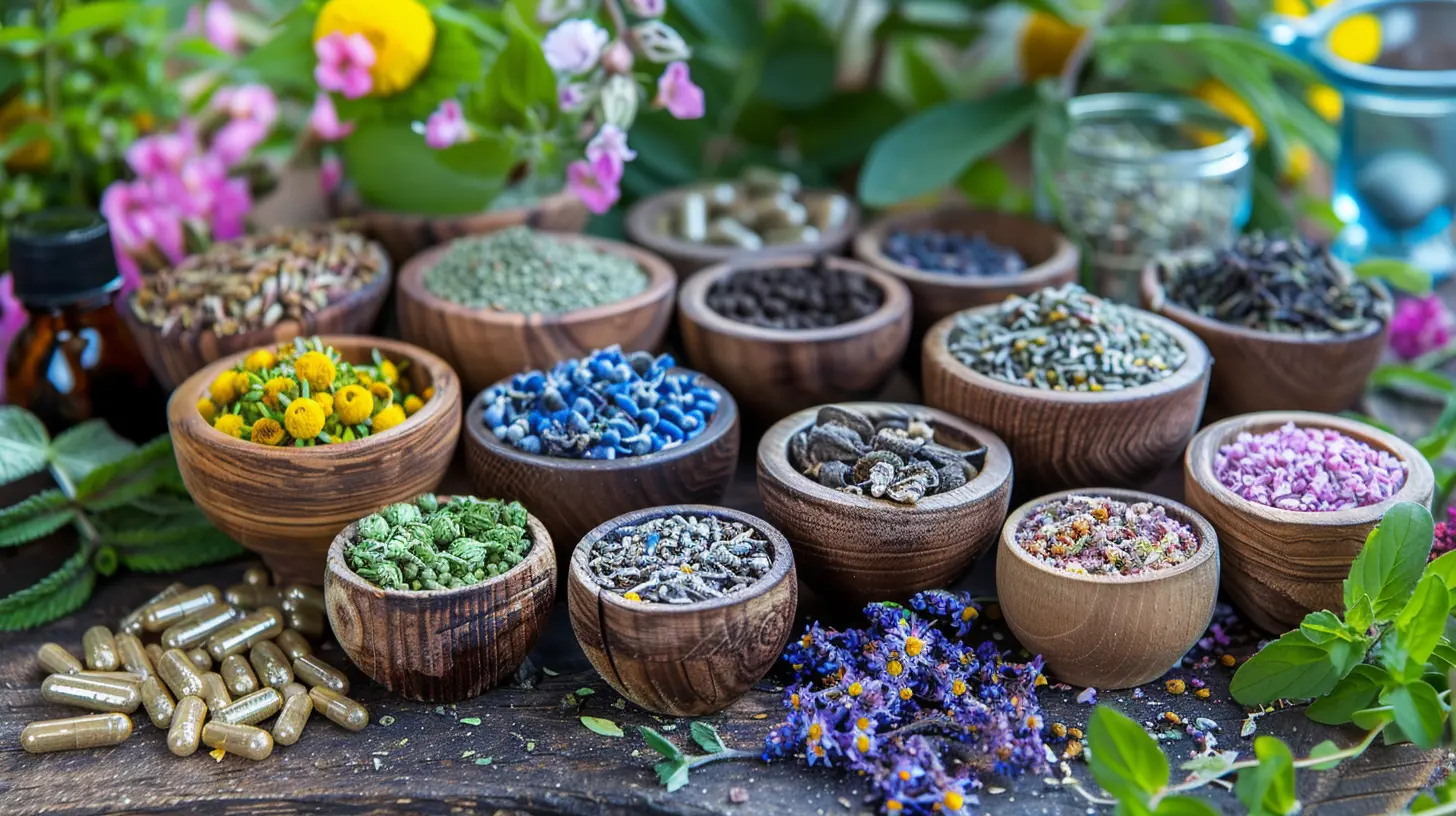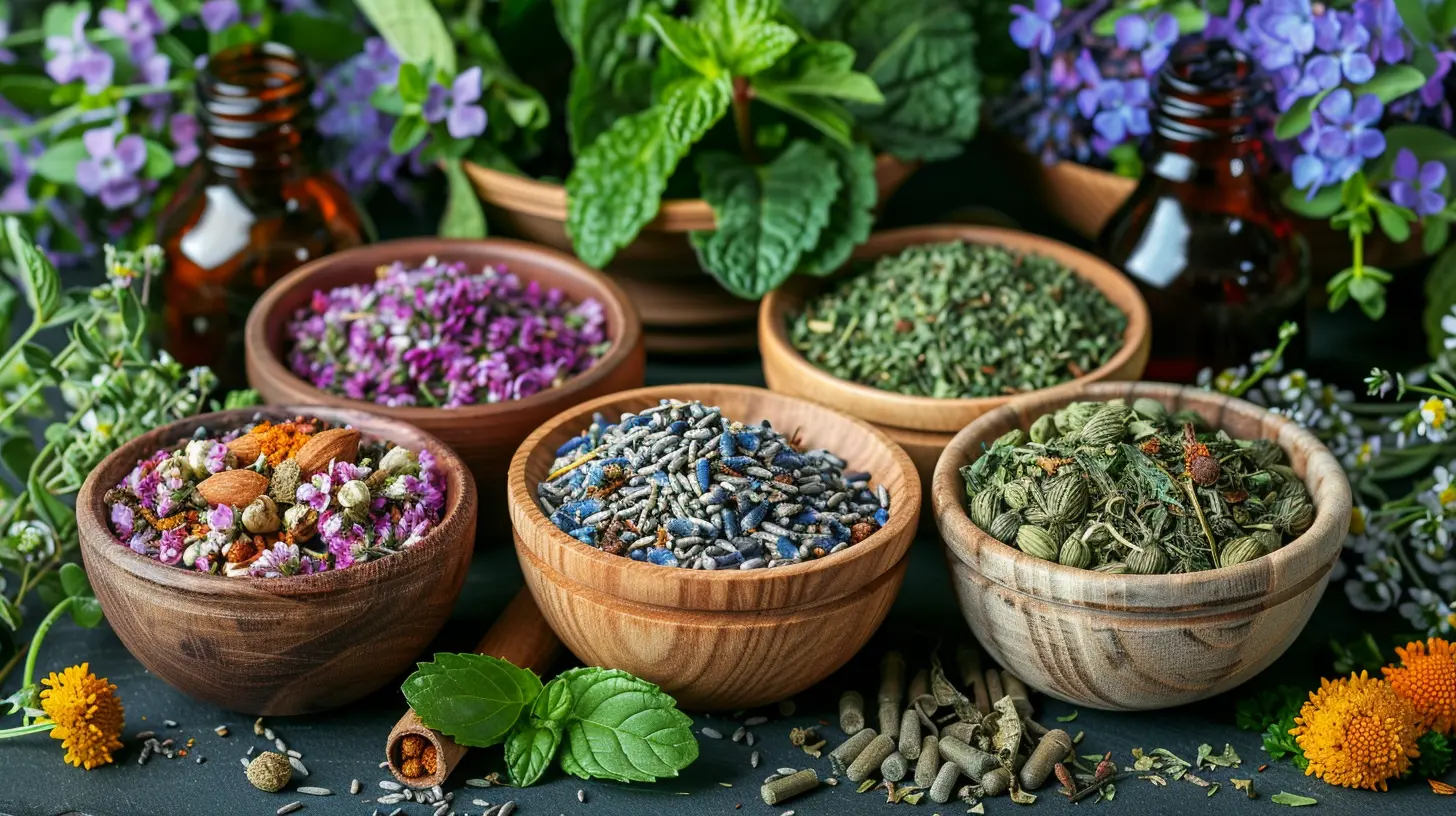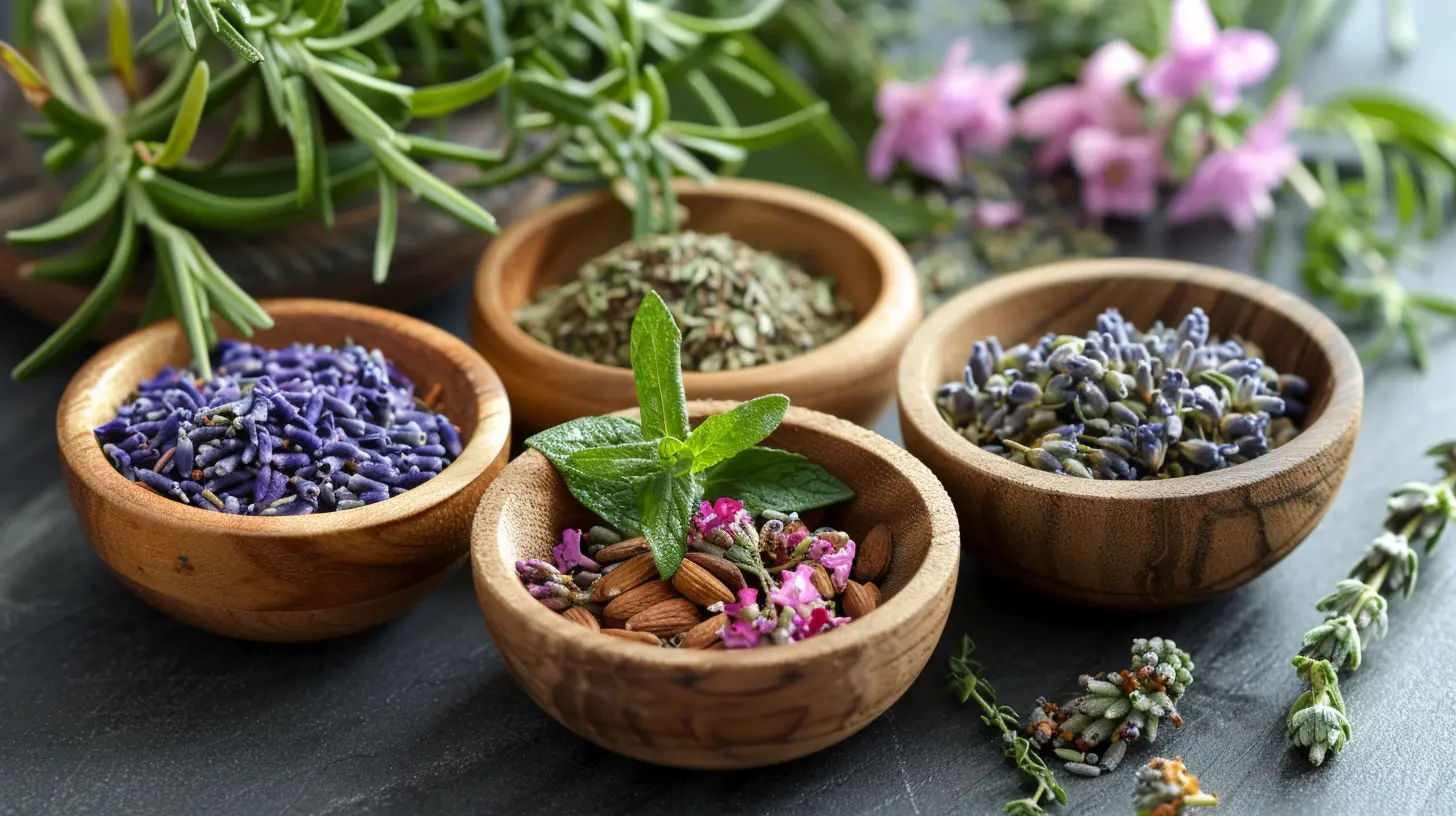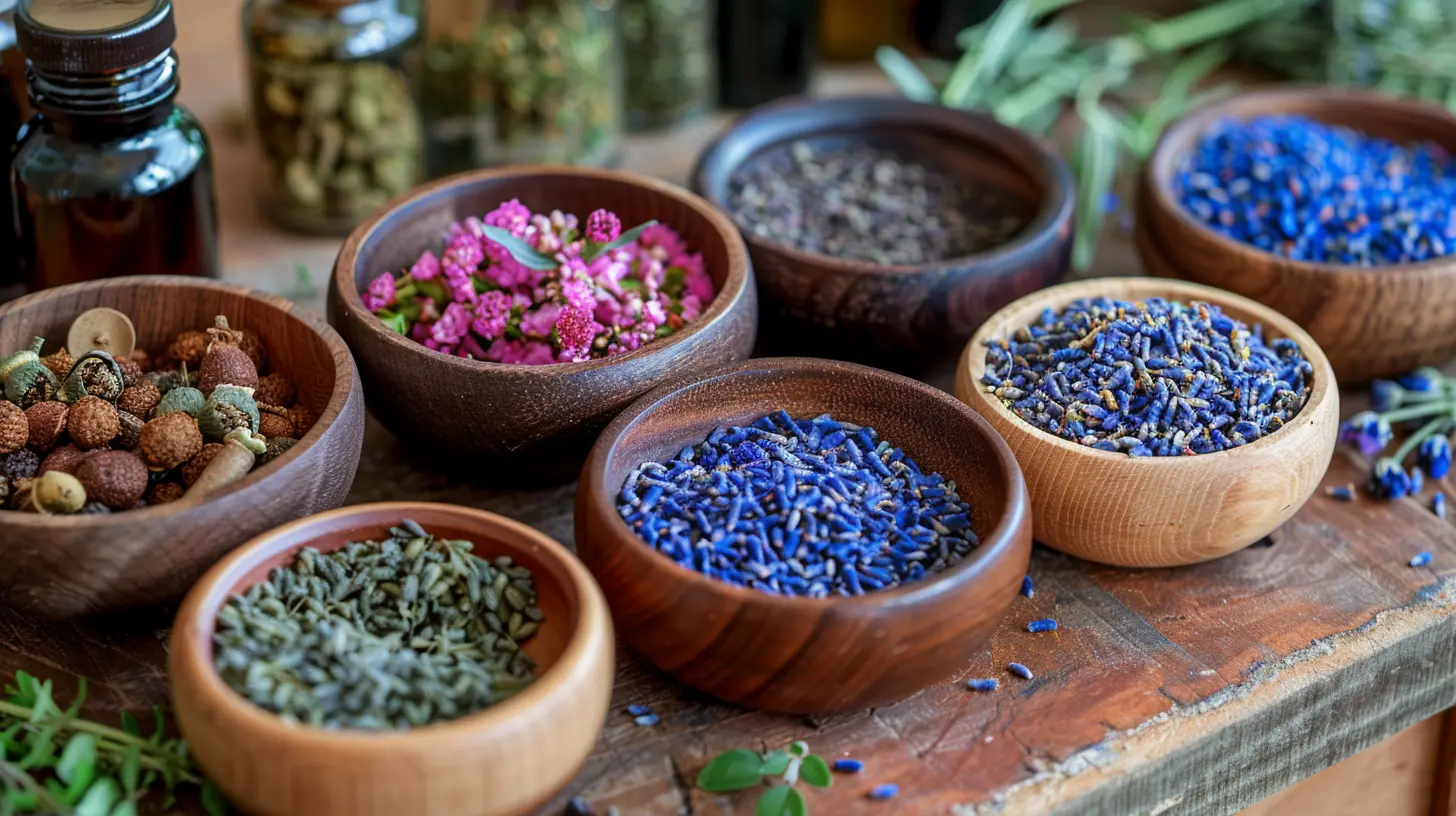Herbs That Help Promote Hormonal Balance
4 August 2025
Let’s talk hormones. Those tiny chemical messengers that run the entire show inside your body—mood, energy, sleep, skin, libido, metabolism—you name it, hormones play a starring role. But when things go out of whack? Oh boy, your body knows it. Fatigue, mood swings, weight gain, acne, hot flashes... sound familiar?
Now, while modern medicine absolutely has its place, nature’s pharmacy has been supporting our hormones long before supplements and prescriptions came in neat little bottles. Herbs—yes, the ones growing in your garden or sitting on your spice rack—have some serious balancing powers when it comes to our endocrine system.
So, if your hormones are throwing a tantrum, and you're looking for natural ways to smooth the chaos, let's dive into the world of herbs that help promote hormonal balance. Think of this as your earthy, green, plant-powered rescue guide.
🌿 What Does “Hormonal Balance” Actually Mean?
Before we start sprinkling herbs into our tea like potion masters, let’s understand what we’re trying to balance.Hormonal balance means that your body is producing just the right amount of each hormone—no more, no less. These include estrogen, progesterone, testosterone, insulin, cortisol, thyroid hormones, and many others. They're all like instruments in an orchestra—when one’s off-key, the entire symphony sounds off.
Symptoms of hormonal imbalance can range from:
- Mood swings or depression
- Low libido
- Irregular periods
- Acne or skin issues
- Insomnia
- Fatigue
- Hair thinning
And the list goes on.
Luckily, nature offers a bunch of herbs that provide gentle, sustainable support to help bring hormones back into rhythm.
🌼 Herbal Heroes for Hormonal Harmony
Let’s break down the most powerful herbs that support hormonal balance, one by one—how they work, who they’re best for, and how to use them.1. Maca Root (Lepidium meyenii)
Ever heard of Peruvian ginseng? That’s Maca for you. It’s a root that’s been used for centuries by indigenous Andean cultures to boost stamina, fertility, and resilience.How Maca Helps:
Maca doesn’t contain hormones itself, but it nourishes the hypothalamus and pituitary gland (a.k.a. the commanders of your entire endocrine system). This leads to better regulation of estrogen, progesterone, and testosterone.
It’s particularly helpful for:
- PMS
- Menopause symptoms
- Low libido
- Mood swings
How to Use Maca:
Start with 1 teaspoon of maca powder a day in smoothies, oatmeal, or coffee. Maca can be energizing, so best taken in the morning or early afternoon.
2. Vitex (Chaste Tree Berry)
Vitex is the queen of hormone-regulating herbs, especially for anyone with a uterus.What It Does:
Vitex indirectly supports progesterone production by influencing the pituitary gland, helping to lengthen the luteal phase of the menstrual cycle. It's great for balancing estrogen and progesterone.
Best For:
- Irregular periods
- PMS
- PCOS
- Menstrual cramps
- Fertility support
How to Use Vitex:
Available in capsules or tinctures. Take it first thing in the morning on an empty stomach. Consistency is key—give it 3–6 months for full effects!
3. Ashwagandha
This Ayurvedic powerhouse is a gentle adaptogen—meaning it helps your body “adapt” to stress by supporting the adrenal glands (your stress managers).Why It Matters:
When you’re stressed out, your cortisol levels rise. High cortisol hijacks your other hormones, leading to fatigue, low libido, and weight gain. Ashwagandha helps keep cortisol in check.
Great For:
- Stress-related hormonal imbalances
- Low thyroid function
- Insomnia
- Adrenal fatigue
How to Use Ashwagandha:
Available in powders, capsules, or teas. Start with a small dose (300-500 mg daily). Pairs wonderfully with warm milk or golden lattes.
4. Rhodiola Rosea
If you’ve been burning the candle at both ends, Rhodiola is a must. Another adaptogen, it helps bring balance to your nervous and endocrine systems.Hormonal Benefits:
Helps regulate cortisol while also supporting dopamine and serotonin levels. This makes it a great option if hormonal imbalance has you feeling anxious, drained, or mentally foggy.
Best For:
- Fatigue
- Brain fog
- Anxiety
- Stress-induced hormonal issues
How to Use Rhodiola:
Take as a capsule or tincture—often combined with other adaptogens like ashwagandha or schizandra. Start low and slow. It can be stimulating, so take it earlier in the day.
5. Black Cohosh
This herb is particularly well-known among women navigating perimenopause and menopause.Why It Works:
Black cohosh interacts with estrogen receptors and acts pretty similarly to estrogen in the body—without being an actual hormone. It eases estrogen withdrawal symptoms.
Helpful For:
- Menopausal hot flashes
- Night sweats
- Mood changes
- Vaginal dryness
How to Use:
Often found in capsules or tinctures. Consult with a healthcare provider before starting, especially if you’ve had hormone-sensitive conditions.
6. Licorice Root
No, not the candy! The root itself is a powerful adaptogen and anti-inflammatory agent.Hormonal Benefits:
Helps regulate cortisol levels and supports adrenal function. It also has phytoestrogenic properties, making it useful in balancing estrogen levels.
Best For:
- Adrenal fatigue
- PCOS
- Menstrual irregularities
Use With Caution:
Licorice can raise blood pressure, so avoid if you’re hypertensive. Look for deglycyrrhizinated licorice (DGL) for safer long-term use.
7. Holy Basil (Tulsi)
This calming, sacred herb does more than just make a tasty tea. It’s also a natural adaptogen and supports many hormonal functions.How It Helps:
Reduces stress, supports immune function, and balances blood sugar—all of which are deeply connected to hormonal health.
Best For:
- Cortisol balance
- Mood swings
- Immune-related hormonal issues
How to Use:
Drink Tulsi tea daily, or take it in capsules or tincture form. Bonus? It tastes amazing!
8. Dong Quai (Angelica sinensis)
Known as the “female ginseng,” Dong Quai has been a staple in Traditional Chinese Medicine for thousands of years.What It Does:
Supports blood flow to the reproductive organs and helps balance estrogen levels. Often used to regulate menstrual cycles and relieve cramps.
Ideal For:
- Menstrual irregularities
- PCOS
- Menopause support
How to Use:
Usually taken as a tincture or capsule. Avoid during menstruation if you have heavy periods—Dong Quai can increase blood flow.
9. Schisandra Berry
These tart little berries are another adaptogen that supports both adrenal and liver function.Why That Matters:
Your liver is responsible for breaking down and eliminating excess hormones. If it’s sluggish, your hormone levels can go haywire.
Best Uses:
- Detoxifying excess estrogen
- Supporting adrenal health
- Increasing libido and energy
How to Enjoy:
Schisandra powder can be added to smoothies or elixirs. It’s a bit sour, but pairs well with berries or citrus.
🌱 Supporting Herbs Are Only One Piece of the Puzzle
Sure, herbs are amazing, but they’re not magic bullets. For true hormonal harmony, you’ll also want to get these lifestyle pieces in check:- Sleep: 7–9 hours a night minimum
- Stress Management: Meditation, yoga, breathwork, therapy—whatever works for you
- Diet: Whole foods, plenty of healthy fats, protein, and veggies
- Exercise: Move your body, but don’t overtrain
- Ditch the Toxins: Reduce exposure to plastics, endocrine disruptors, and processed junk
Think of herbs as your gentle, green allies. They'll give your body a nudge in the right direction, but real transformation takes a holistic approach.
💡 How to Start Using Hormonal Balancing Herbs
Overwhelmed by the options? Don’t worry. You don’t need to take every herb on this list. Start with one or two that align with your main symptoms. Keep it simple.Here’s a mini-guide to match symptoms with herbs:
| Symptom | Helpful Herbs |
|--------|----------------|
| PMS, Cramps | Vitex, Dong Quai |
| Perimenopause | Black Cohosh, Maca |
| Low Energy | Rhodiola, Schisandra, Ashwagandha |
| Stress + Sleep | Holy Basil, Ashwagandha |
| PCOS | Licorice, Vitex, Dong Quai |
| Low Libido | Maca, Schisandra, Rhodiola |
And always—yes, always—check with a healthcare professional, especially if you're pregnant, on medication, or have a medical condition. Natural doesn’t always mean harmless.
✨ Final Thoughts
Hormonal balance isn’t just about fixing periods or menopause symptoms—it’s about feeling like yourself again. Full of life, energy, clarity, and calm. And herbs? They’re one of nature’s most beautiful gifts to help us find that flow.So brew that tea, take that tincture, and give your hormones the love they’ve been begging for.
all images in this post were generated using AI tools
Category:
Healthy HormonesAuthor:

Madeline Howard
Discussion
rate this article
1 comments
Rina Russell
This article offers valuable insights into the role of herbs in achieving hormonal balance. The inclusion of natural remedies like ashwagandha and maca is particularly enlightening. It’s a fantastic resource for anyone looking to enhance their wellness journey through herbal support. Highly recommend!
August 15, 2025 at 3:34 PM

Madeline Howard
Thank you for your thoughtful feedback! I'm glad you found the insights on herbs like ashwagandha and maca helpful for promoting hormonal balance. Your recommendation means a lot!


